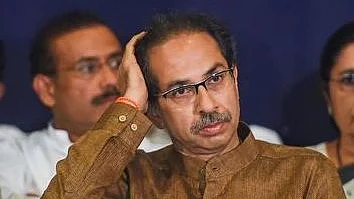Jharkhand govt withdraws Pathalgadi sedition case, all eyes on Maharashtra now
While newly-elected Jharkhand CM Hemant Soren has decided to withdraw the Pathalgadi sedition case, Maharashtra CM Uddhav Thackeray is yet to initiate process to withdraw Bhima-Koregaon sedition case

While Jharkhand Chief Minister Hemant Soren decided to withdraw the Pathalgadi sedition case in his maiden cabinet meet, Maharashtra Chief Minister Uddhav Thackeray is yet to initiate the process to withdraw the Bhima-Koregaon sedition case.
In both the cases innocent protesters were framed by the previous BJP governments of these two states. The Pathalgadi movement in Jharkhand began in 2017 when some stone plaques and signboards were placed in over 200 villages. The inscriptions on the stones dismissed the authority of the state governments in their villages.
The plaques had inscriptions from the Panchayat (Extension to the Scheduled Areas) Act or PESA which underlined that the villagers were independent from the state and central governments. The state government and the state police took it as a challenge to the authority of the state.
In fact, tribals would not have resorted to this form of movement if the Raghubar Das government had exercised some restraint. The trigger for this agitation was the move of the Das government to acquire their lands and hand over them to the corporate houses, particularly to Adani group.
In November 2016, Jharkhand Assembly passed two amendments allowing the acquisition of tribal land for developmental projects. In the wake of this move Jharkhand witnessed a number of protests. Tribals took to streets. Bandhs were called. A couple of protesters were killed by the police. The movement at that point of time had received wide political support.
The protagonists of the movement accused Das of snatching away the rights of the tribal people after amending the CNT and SPT laws. It was then a total of 19 cases of sedition were registered against over 150 people. More than 75 FIRs were filed nearly against 1000 supporters of the movement in different police stations of Khunti district in 2018. The government charged that the Pathalgadi movement was a separatist movement initiated by the tribal groups in 2017 against the then Raghubar Das.
The protesters even did not get relief from the High Court which declined to quash an FIR against four tribal leaders J. Vikash Kora, Dharm Kishor Kullu, Emil Walter Kandulna and Ghanshyam Biruly, who were charged with sedition for allegedly inciting the members of the Munda tribal community to attack police officials on June 26, 2018.
The BJP government claimed Pathalgadi was sponsored by Christian missionaries. But the accusations could not be substantiated as the Torpa block in Khunti district, which has the highest population of Christians, did not see any Pathalgadi ceremonies.
After the coalition government in Maharashtra took office, the partners approached Thackeray with the request to immediately withdraw the cases against activists who were arrested in Bhima-Koregaon violence and ridiculed as “urban Naxals” by the saffron brigade.
The activists suffered a lot because of ideological reasons. They are not Naxalites and they never indulged in violence. There was no credible evidence against them. The Shiv Sena was an ally of the BJP at that time. But even at that time Uddhav had criticised police for holding a media trial of the accused persons instead of submitting the evidence before the court.
The Bhima-Koregaon case is linked to the commemoration of a victory of the British army, made up mostly of Mahar soldiers, over a larger force led by the upper-caste Peshwas in 1818. Over the decades, the commemoration, pioneered by B.R. Ambedkar, has become a signature event for Ambedkerites.
The police carried out raids across the country and arrested several people, including Telugu poet and writer Varavara Rao, rights activists Rona Wilson and Vernon Gonsalves, advocates Arun Ferreira, Sudha Bharadwaj and Surendra Gadling and journalist Gautam Navlakha. Most of them have been behind bars since August 2018.
The government accused the activists of involving in Maoist activities, including the plan to assassinate the Prime Minister, and collecting funds for the insurgents. Dalit scholar Anand Teltumbde was put under house arrest after Delhi High Court stayed his detention.
What was most shocking was accusation against Vernon Gonsalves of possessing the most "objectionable material", Leo Tolstoy's War and Peace at his home. The book was presented as an evidence for the activists’ affiliation with banned organization.
Follow us on: Facebook, Twitter, Google News, Instagram
Join our official telegram channel (@nationalherald) and stay updated with the latest headlines